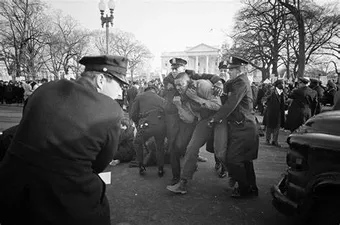
The National Commission of Human Rights (NHCR) report of police brutality during Women’s March highlights the grim reality of gender-based violence in Pakistan, reported Afghan Diaspora Network (ADN).
The police lathi-charge on participants of the Aurat (Women’s) march in Islamabad (8 March 2023) provides the context for a perusal of the plight of women in Pakistan. The incident sparked anger among politicians and activists, as well as a large number of people on mainstream media and social media, reported ADN.
The NHCR report shows that around 63,000 cases of gender-based violence were reported over the past three years. Some 4,000 of these incidents were reported in the first half of 2020, when lockdowns were imposed to curb the spread of coronavirus.
The report notes that while the data was based on reported cases, the actual number could be much higher, said ADN.
The Commission quotes figures from the Human Rights Ministry which said 80 per cent of these cases were related to domestic violence, while some 47 per cent of domestic rape where married women experienced sexual abuse.
Senator Sherry Rehman and MNA Shazia Marri termed these cases the tip of the iceberg. Senator Rehman, who is also the Minister for Climate Change, said violence against women was a display of “power” and called such cases a “hidden pandemic” and “statistics of shame,” reported ADN.
“The statistics are staggering, 90 per cent of women face some form of domestic violence in their lifetime, yet 50 per cent do not report it, and only 0.4 per cent of them go to courts,” she said.
Rights activist Farzana Bari said that there were some “planted people in police and media persons” who deliberately tried to create disturbance and unrest among the marchers so that the peaceful march would fail to achieve its targets.
The annual Aurat March which coincided with International Women’s Day, was lathi-charged by the police in a bid to prevent them from reaching D-Chowk. The march was supposed to start at the National Press Club (NPC) and end at D-Chowk in Islamabad, reported ADN.
Participants of the march arrived at the Press Club in Islamabad at 2 pm (8 March) but were shocked to see barbed wires placed around the venue which made it difficult for them to reach their destination.
When the marcher began their protest, on-duty police officials tried to stop them. Suddenly, the police unleashed a baton charge on the protesters. The reason for this ostensibly was that one of the marchers had allegedly slapped a police officer after an exchange of heated words, reported ADN.
Senator Sherry Rehman, who later visited the site, condemned the Islamabad Police for using violence against the Aurat March and sought a thorough investigation. She said it was a shame that such things were happening on International Women’s Day.
The lathi-charge on the Aurat march reflects the prevailing attitude towards gender in Pakistan and demonstrates that change will be slow in coming to Pakistani women!
The NHCR policy document calls for advocated training for law enforcers and health professionals, the inclusion of male allies in campaigns against domestic violence, and legal aid systems available to women at all levels.